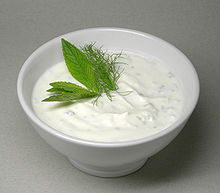 Dr. J. Beinenstock discussed probiotics for food allergy prevention.
Dr. J. Beinenstock discussed probiotics for food allergy prevention. Infants born at high risk of developing allergy have different bacteria in gut flora. Barker postulated "Fetal Programming Hypothesis" - many diseases are triggered or aggravated by intrauterine environmental factors. Hygiene Hypothesis postulates a relationship between increased incidence of autoimmune and allergic disease and decrease of infectious burden. Bach in NEJM 2002 suggested that the decrease in the burden of infections may be leading to increased allergy and autoimmunity.
Probiotics
Probiotics are defined as live microorganisms which when given in adequate amounts confer a health benefit on the host. Prebiotics are defined as non-digestible food ingredients that beneficially affect the host through their influence on colonic bacteria. Probiotics upregulate tight junctions in the GI tract; stabilize epithelial barrier, and promote anti-inflammatory effects. These anti-inflammatory effects include increased IgA, increased regulatory dendritic cells and Tregs, and increased IL-10. Probiotics influence the resident microbiome, ferment and produce products that influence Tregs.
Most probiotics contain lactobacilli but in Europe a non pathogenic strain of E coli is also used. They do not colonize the gut. Lack of colonization of the gut with probiotics means the organism cannot be found in the gut months later. Probiotics are mostly lactobacilli, bifidobacteria, saccharomyces and in Europe non-pathogenic E. coli. Effective probiotic dose is 10^8 to 10^10 bacteria per day.
A study from Cdn Family Phys 2004 published data on randomly chosen probiotic brands and showed very little correlation with actual bacteria in them. There are no standardization of growing methods and most manufacturers won't share as methods are proprietary.
European safety authority has ruled that probiotics and prebiotics can not make any health claims. EFSA no longer allows any positive health claims based on probiotics. European companies are moving away from the term. There is difficulty of getting large scale probiotic studies when even without study sales are billions of dollars per year.
Probiotics and eczema
A study of pregnant women who received lactobacillus in the last 2-4 wks of pregnancy (and the infants received it as well) showed decreased eczema in infants. Lactobacillus supplementation in high risk infants showed reduction in AD but an Australian study couldn't confirm this.
There does not seem to be convincing evidence to date that probiotics are effective for preventing asthma, however. Perinatal consumption of probiotics reduces eczema but not asthma; no evidence of harm from probiotics to date.
There is a clear cut benefit for probiotics to prevent necrotizing enterocolitis especially in premature infants.
75% of total antibiotics used in the USA are being consumed by animals destined for the food industry. Europeans have banned the use of antibiotics in animal husbandry - many are using probiotics instead.
Droste et al. study in Clin Exp Allergy 2000 showed a significant association between antibiotics in the first year of life and asthma, AR, eczema when parents are atopic.
Twitter summary made possible by @IgECPD @allergydoc4kidz @DrAnneEllis
Three allergists did a great job posting updates from the 2013 meeting of the Canadian Society of Allergy and Clinical Immunology (#CSACI): @IgECPD @allergydoc4kidz @DrAnneEllis. Compared to year 2011, this represents 300% growth in Twitter use by the Canadian allergists (from one to three participants, stable since 2012.
For comparison, here are the tweets from the previous #CSACI meetings: http://allergynotes.blogspot.com/search/label/CSACI
Image source: Cacık, a Turkish cold appetiser yoghurt variety, Wikipedia, Creative Commons Attribution ShareAlike 3.0 License.
Related:
No evidence to support the use of prebiotics or probiotics for food allergy prevention http://bit.ly/1khsX7F